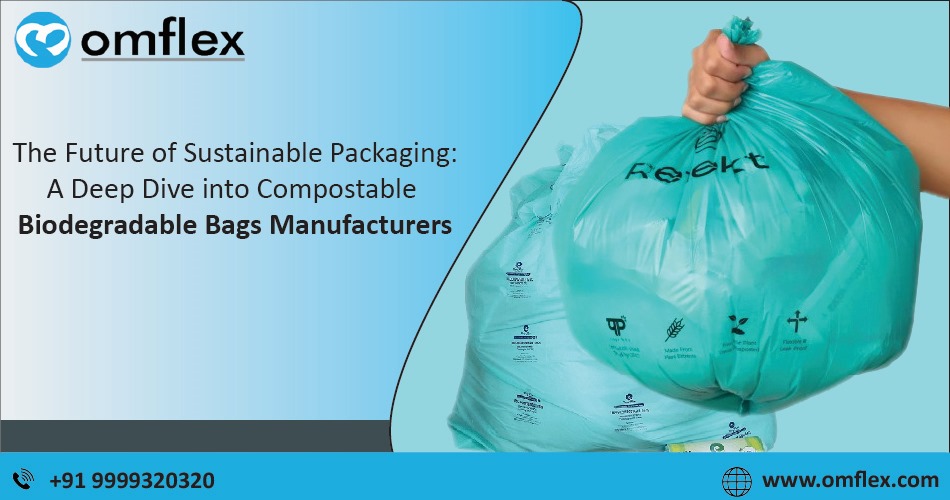
As environmental awareness increases worldwide, businesses and consumers are looking for eco-friendly alternatives to traditional plastic packaging. Among the most promising solutions are compostable biodegradable bags, which offer a sustainable way to reduce plastic waste without compromising functionality. These bags break down naturally and return to the environment without leaving harmful residues. In this blog, we'll explore the rise of compostable biodegradable bags, the science behind their production, and some of the leading manufacturers in this space.
Plastic pollution has become one of the biggest environmental challenges of the 21st century. Every year, millions of tons of plastic waste end up in landfills and oceans, taking hundreds of years to degrade. Traditional plastic bags, made from petroleum-based materials, do not biodegrade, meaning they stay in the environment for centuries, causing harm to wildlife and ecosystems.
Compostable biodegradable bags offer a game-changing alternative. These bags are designed to break down under natural conditions, leaving behind no toxic residue. They can be composted along with organic waste, making them an ideal solution for waste management and reducing the dependency on non-renewable resources.
Compostable bags are made from renewable resources such as plant starch, polylactic acid (PLA), and other biopolymers. Unlike traditional plastic, which is derived from fossil fuels, these materials come from sustainable agricultural sources. When disposed of in the correct conditions—typically in industrial composting facilities—these bags break down into water, carbon dioxide, and organic matter.
As demand for sustainable packaging grows, several manufacturers have emerged as industry leaders in producing compostable biodegradable bags. Here are a few notable companies:
Challenges and Misconceptions
Despite the advantages of compostable biodegradable bags, there are some challenges and misconceptions that need to be addressed:
The future of compostable biodegradable bags looks promising as more businesses adopt sustainable packaging practices and governments implement stricter regulations to reduce plastic pollution. Advances in material science will continue to improve the performance and affordability of compostable materials, making them an increasingly viable option for mainstream use.
Moreover, the rise of circular economies—where products are designed to be reused or recycled—will further promote the use of compostable packaging. As the world moves towards a zero-waste future, compostable biodegradable bags will play a key role in reducing our environmental footprint.
Compostable biodegradable bags manufacturers represent a powerful solution to the global plastic waste crisis. By offering a sustainable, eco-friendly alternative to traditional plastic, these bags help reduce pollution, conserve resources, and support organic waste management systems. However, their widespread adoption depends on improving composting infrastructure, lowering costs, and educating consumers on the proper disposal of compostable products.
One company leading the charge in this space is Omflex, a prominent manufacturer committed to producing innovative and sustainable packaging solutions. Omflex's compostable biodegradable bags are crafted from eco-friendly materials, offering businesses a viable option to reduce their environmental impact. With a focus on quality and sustainability, Omflex ensures that their products meet the growing demands of the green packaging industry.
Manufacturers and businesses that prioritize compostable bags in their packaging strategies not only contribute to environmental protection but also align with growing consumer demand for sustainability. As the industry evolves, compostable biodegradable bags, supported by companies like Omflex, are set to become an essential part of the global effort to create a greener, cleaner future.
B-196 Okhla Industrial Area Phase-01, New Delhi-110020 India.
info@omflex.com